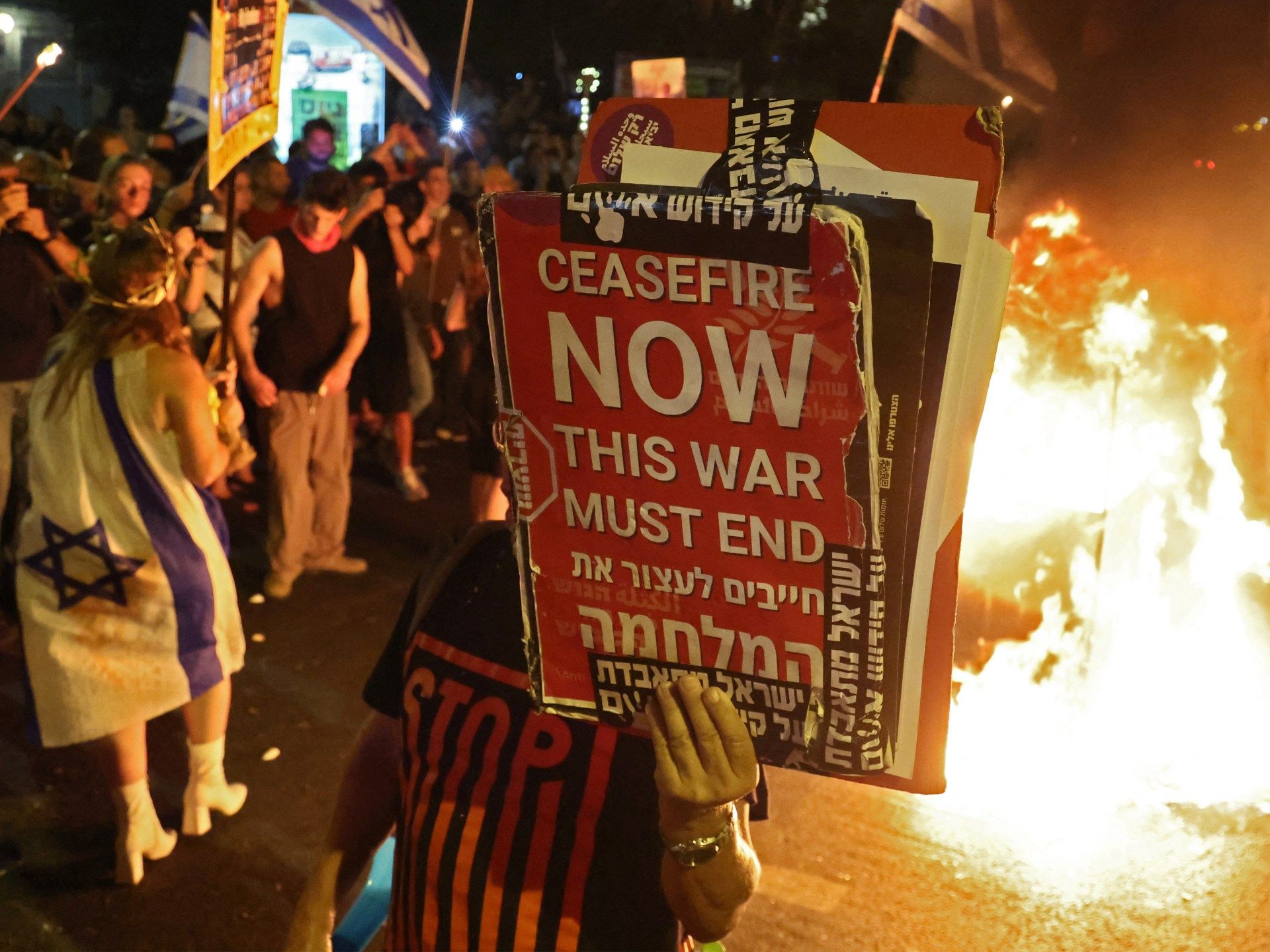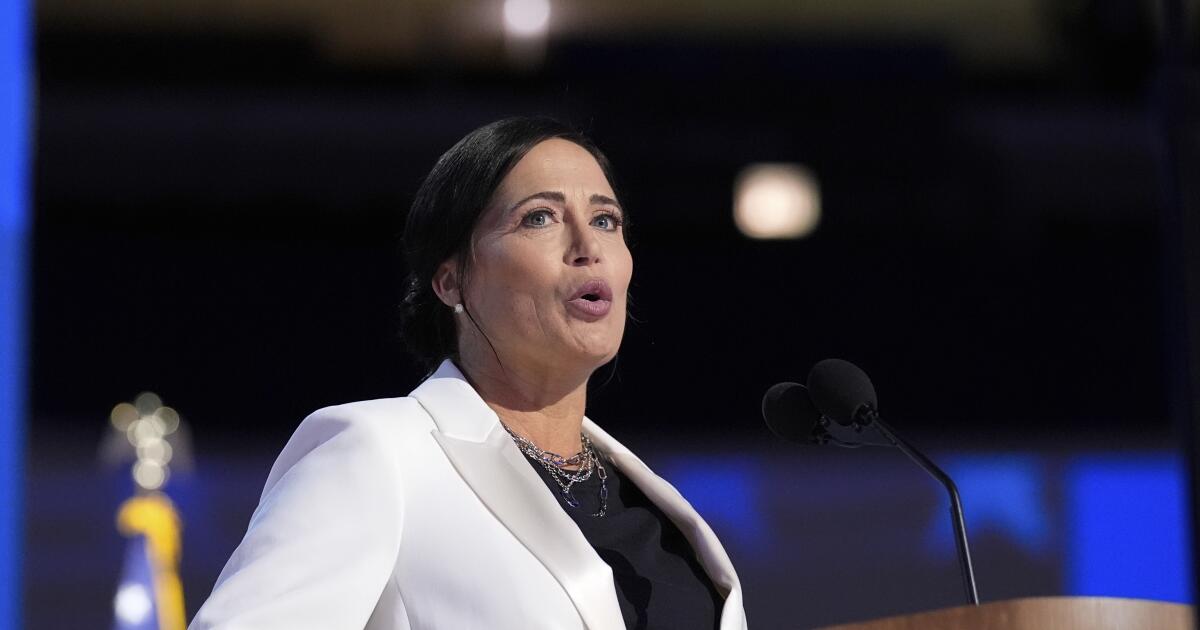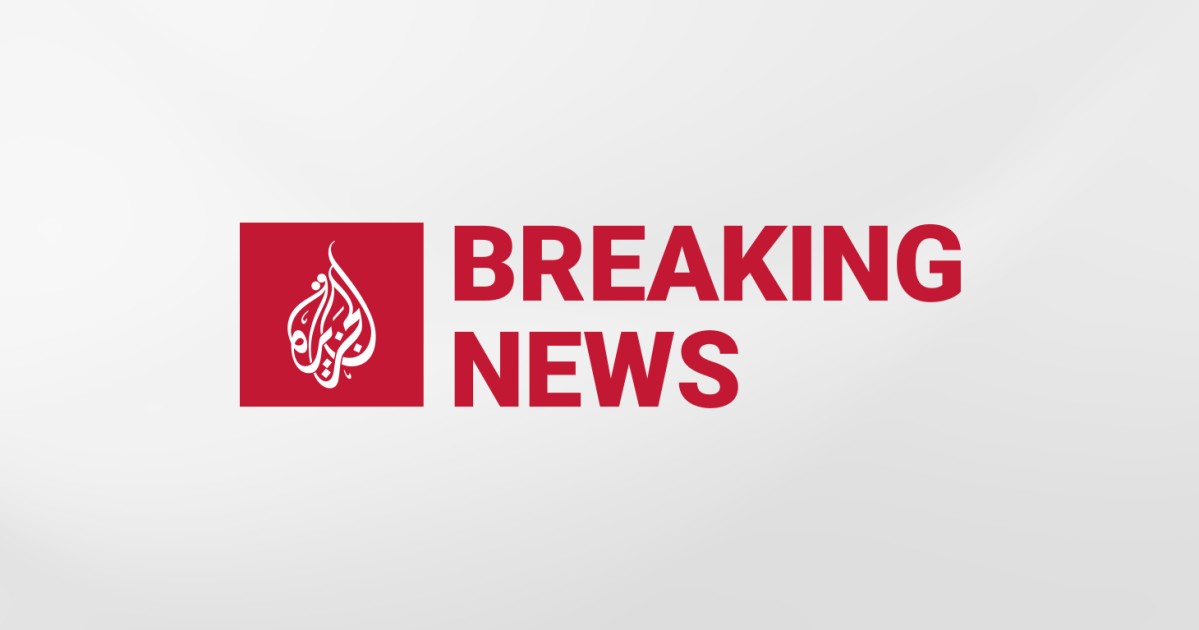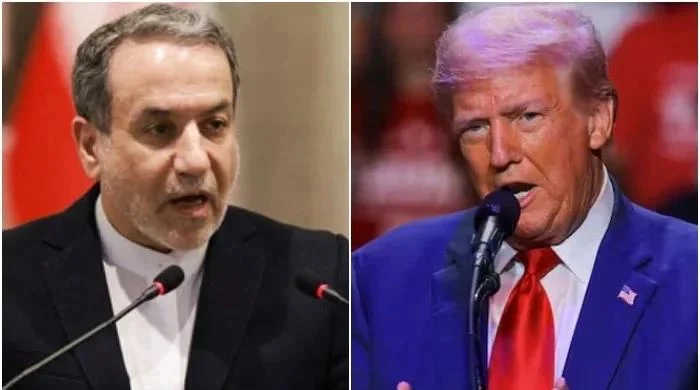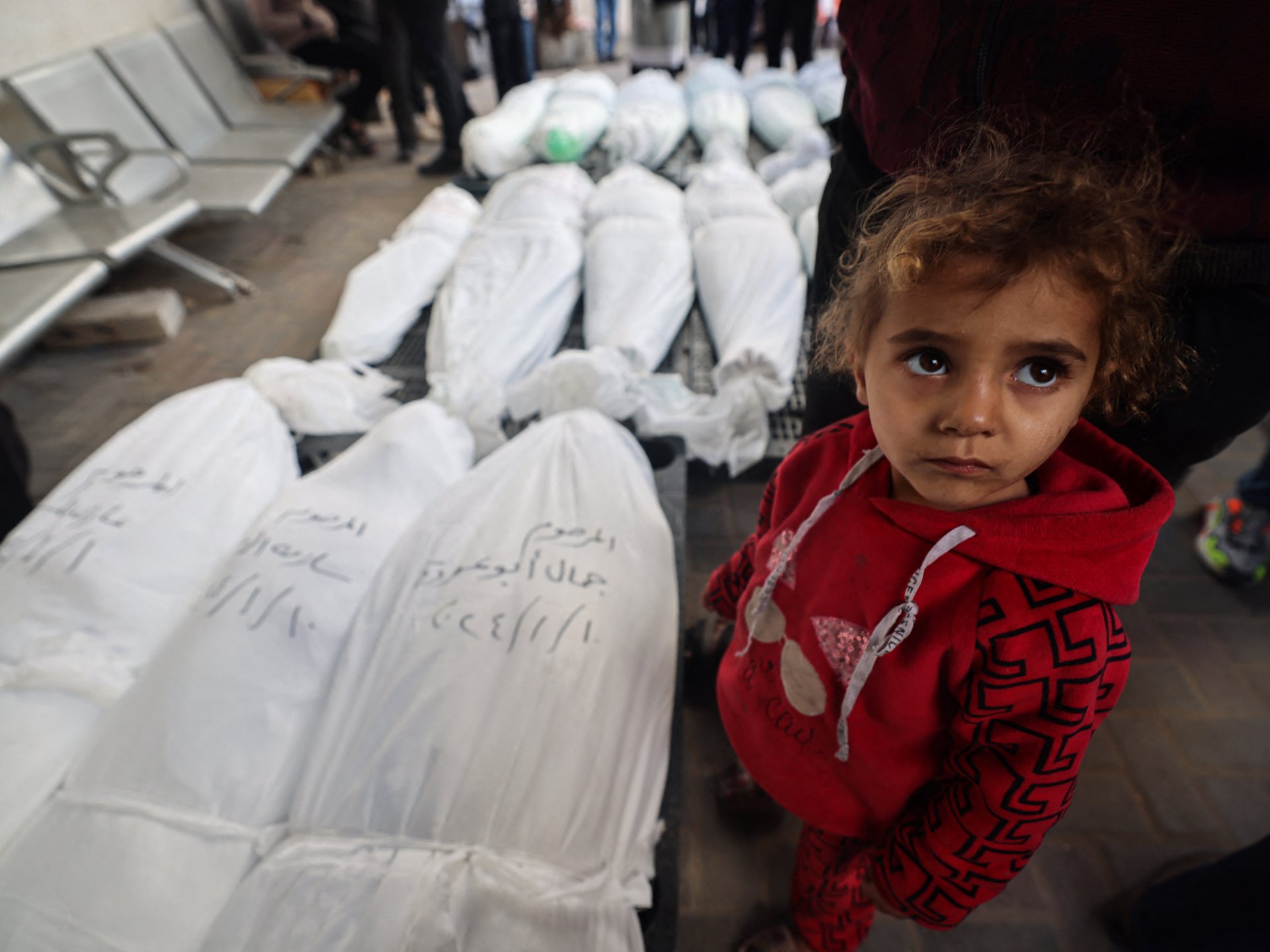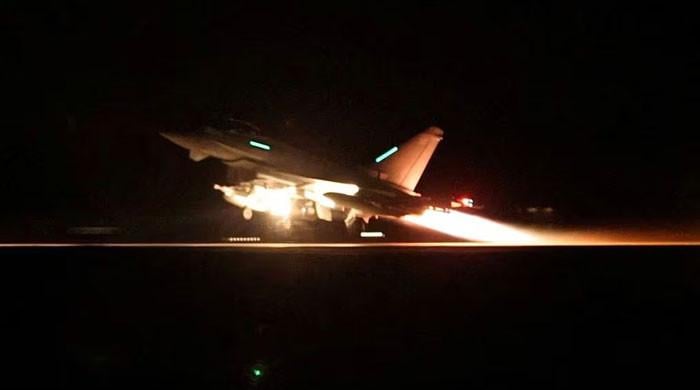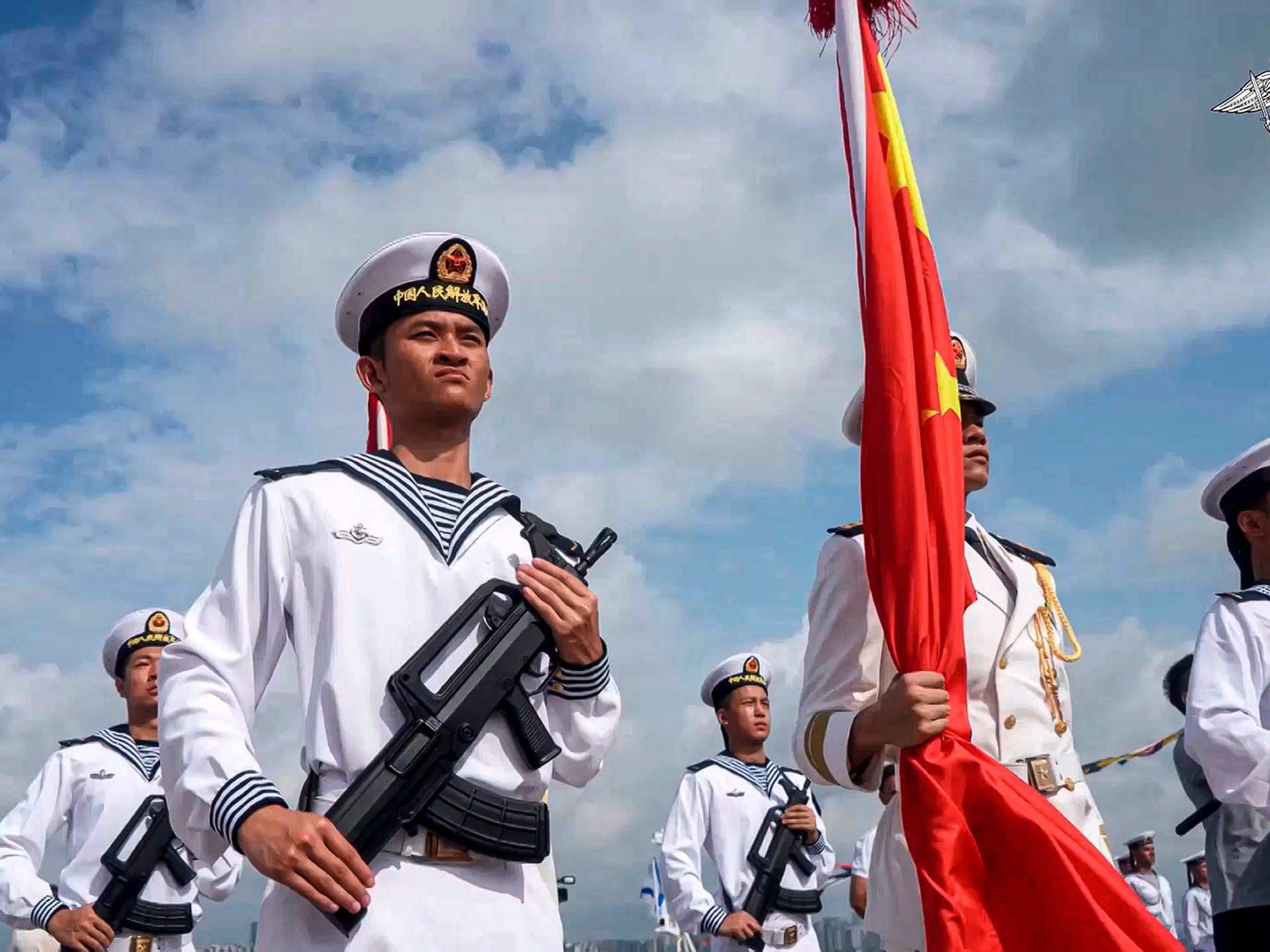An estimated 150,000 people attended the rally in one of the largest demonstrations since Israel's war on Gaza began.
Tens of thousands of protesters waving Israeli flags and chanting slogans against Prime Minister Benjamin Netanyahu's government rallied in Tel Aviv on Saturday, demanding new elections and the return of captives held in Gaza.
Large protests have occurred weekly in the Israeli city over Netanyahu's handling of the nearly nine-month war in Gaza sparked by Hamas' Oct. 7 attack on southern Israel.
Many protesters held signs reading “Crime Minister” and “Stop the war” as people flooded the main street of the largest Israeli city.
“I am here because I am afraid of my grandson's future. There will be no future for them if we don't come out and get rid of the horrible government,” said contractor Shai Erel, 66. “All the rats in the Knesset… I wouldn't let any of them be a kindergarten guard.”
The anti-government protest organization Hofshi Israel estimated that more than 150,000 people attended the demonstration, calling it the largest since Israel's war on Gaza.
Some protesters lay on the ground covered in red paint in the city's Democracy Square to protest what they say is the death of the country's democracy under Netanyahu.
In a speech to the crowd, a former head of Israel's internal security agency, Shin Bet, Yuval Diskin, condemned Netanyahu as Israel's “worst prime minister.”
Many are frustrated with the country's right-wing coalition, which includes Security Minister Itamar Ben-Gvir and other far-right ultranationalists, accusing it of prolonging the war in Gaza and putting the country's security and its captives at risk.
Yoram, a 50-year-old tour guide who declined to give his last name, said he attended all the weekly protests because Israel needed elections “yesterday” because of Netanyahu.
“I really hope the government collapses. “If we go to the original election date in 2026, it will not be a democratic election.”
Another demonstration in Tel Aviv on Saturday night attracted thousands of relatives and supporters of the captives.

